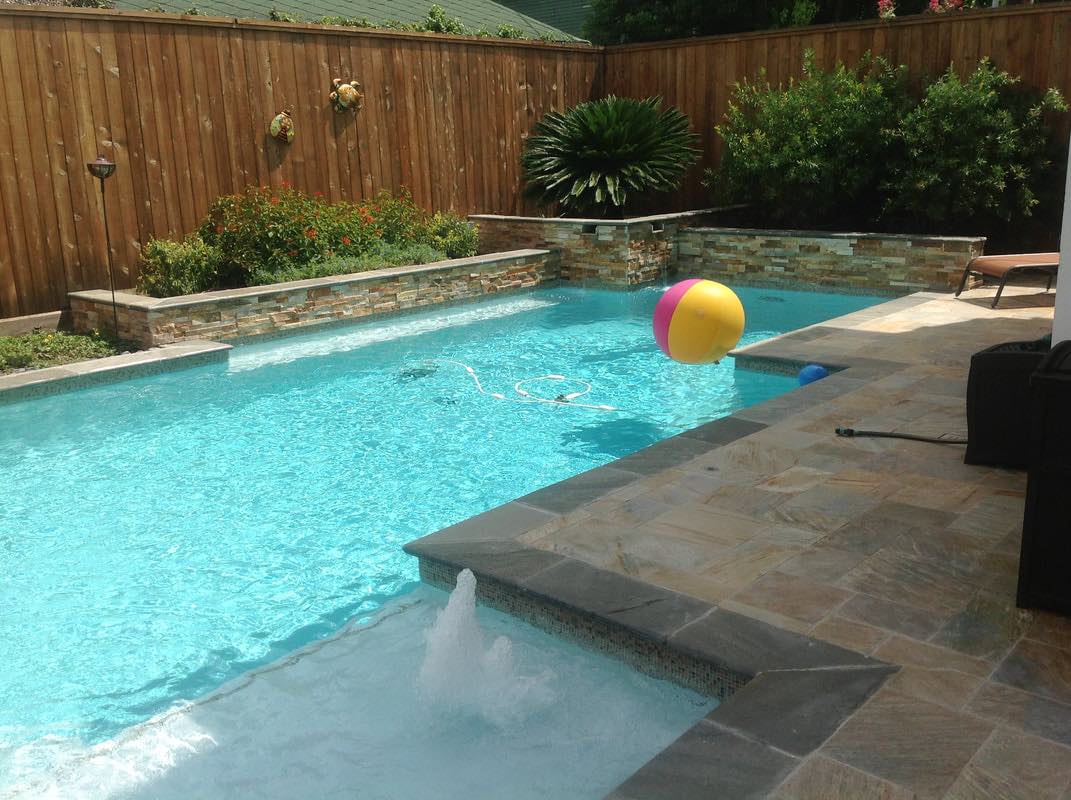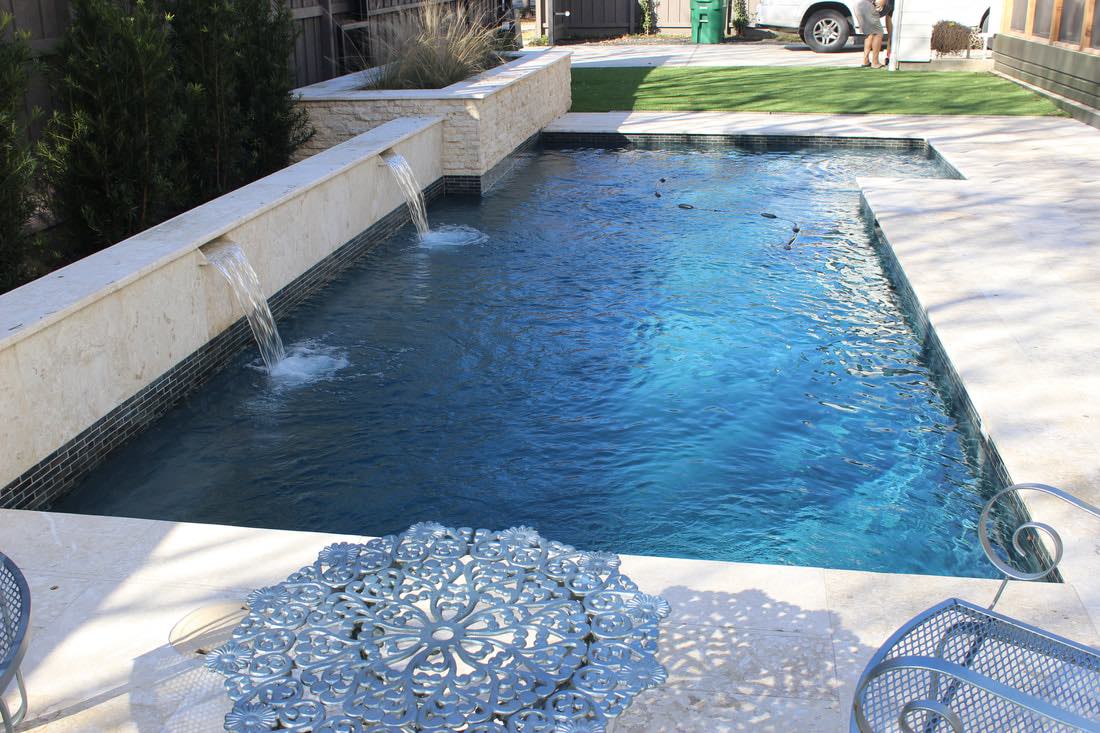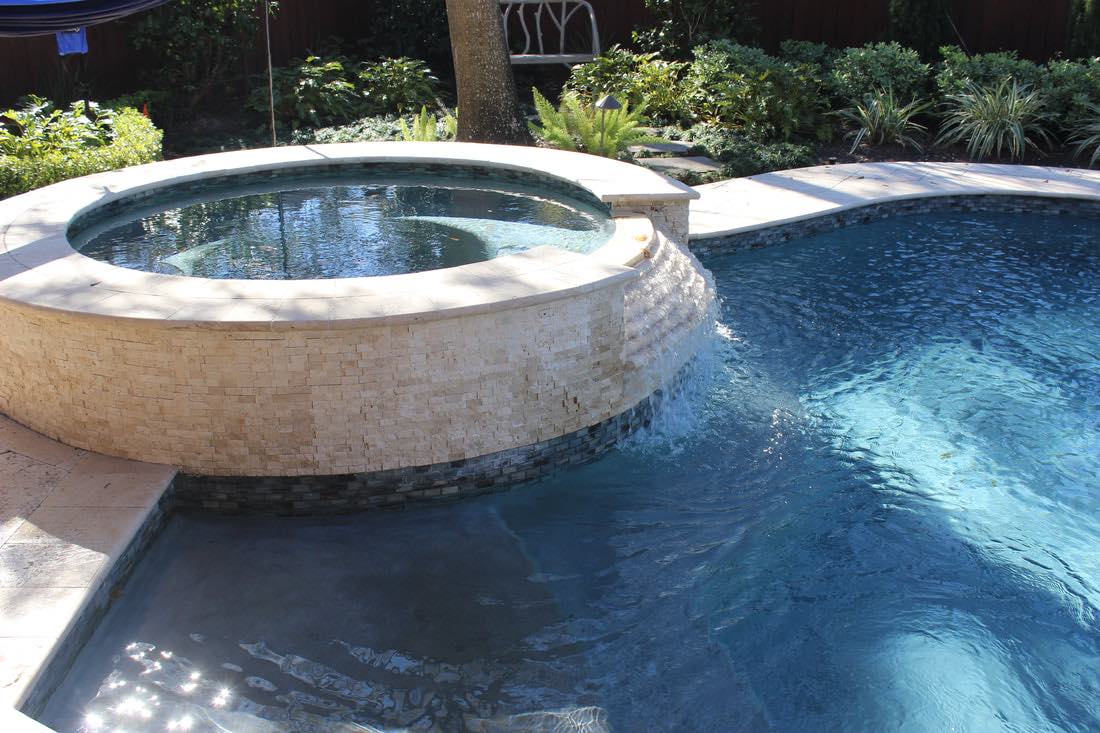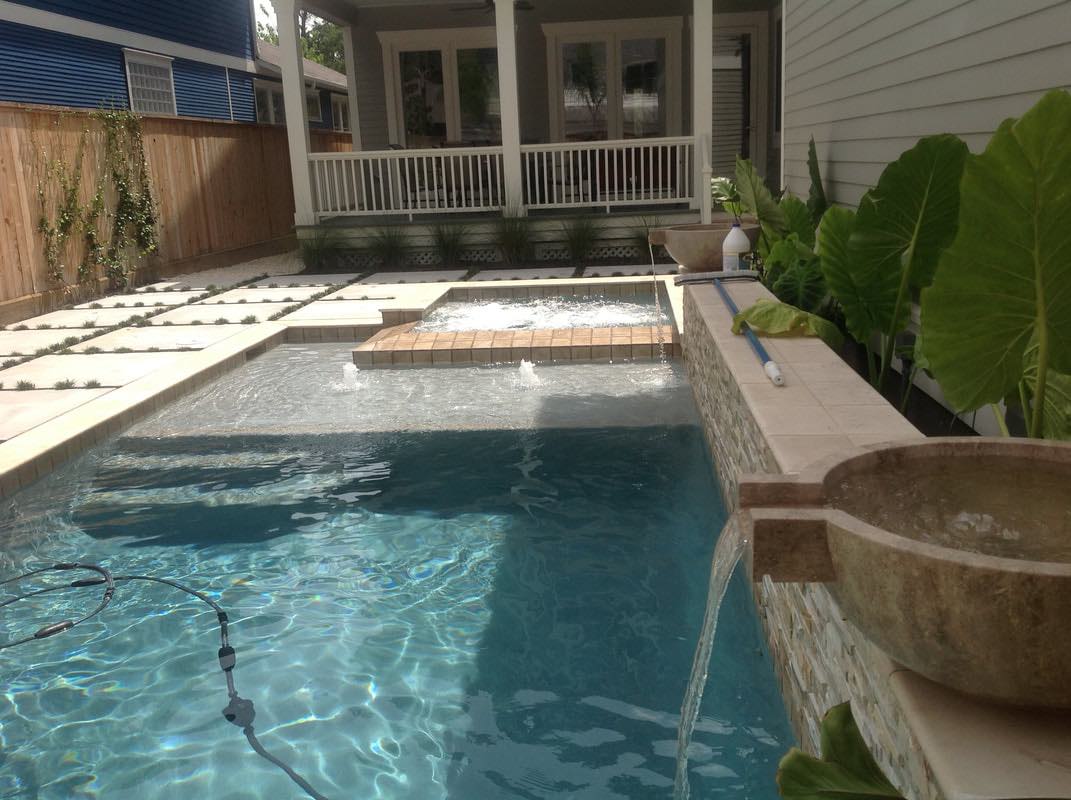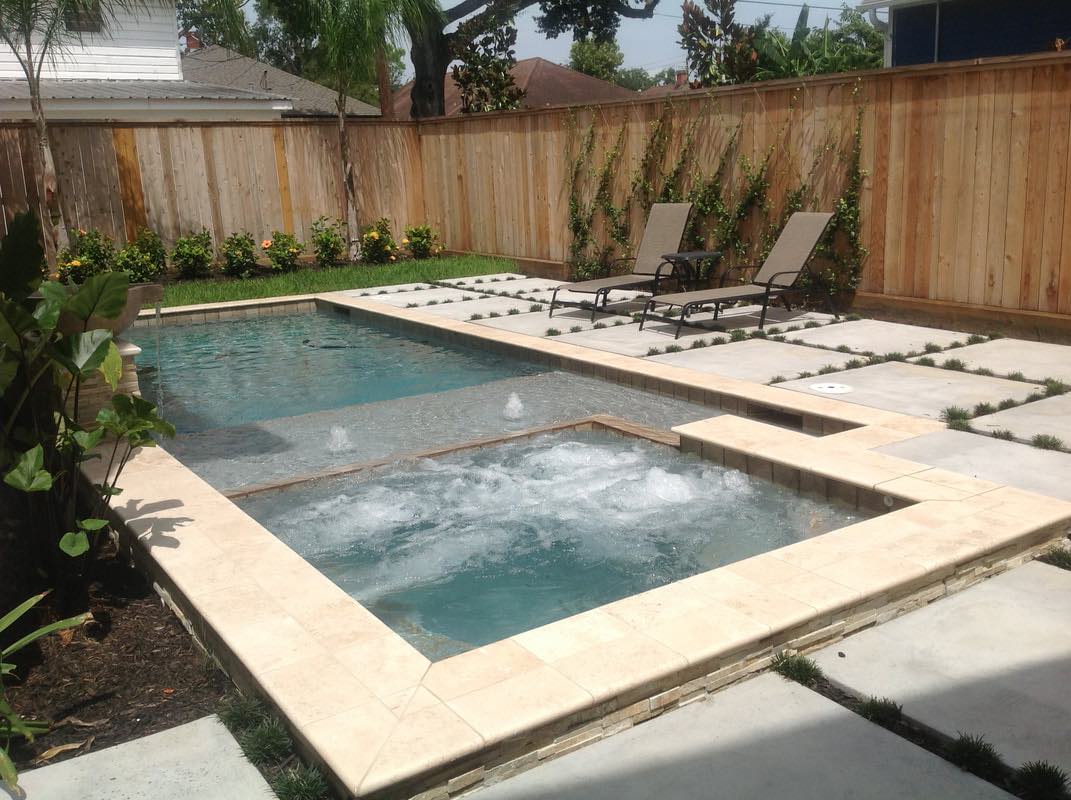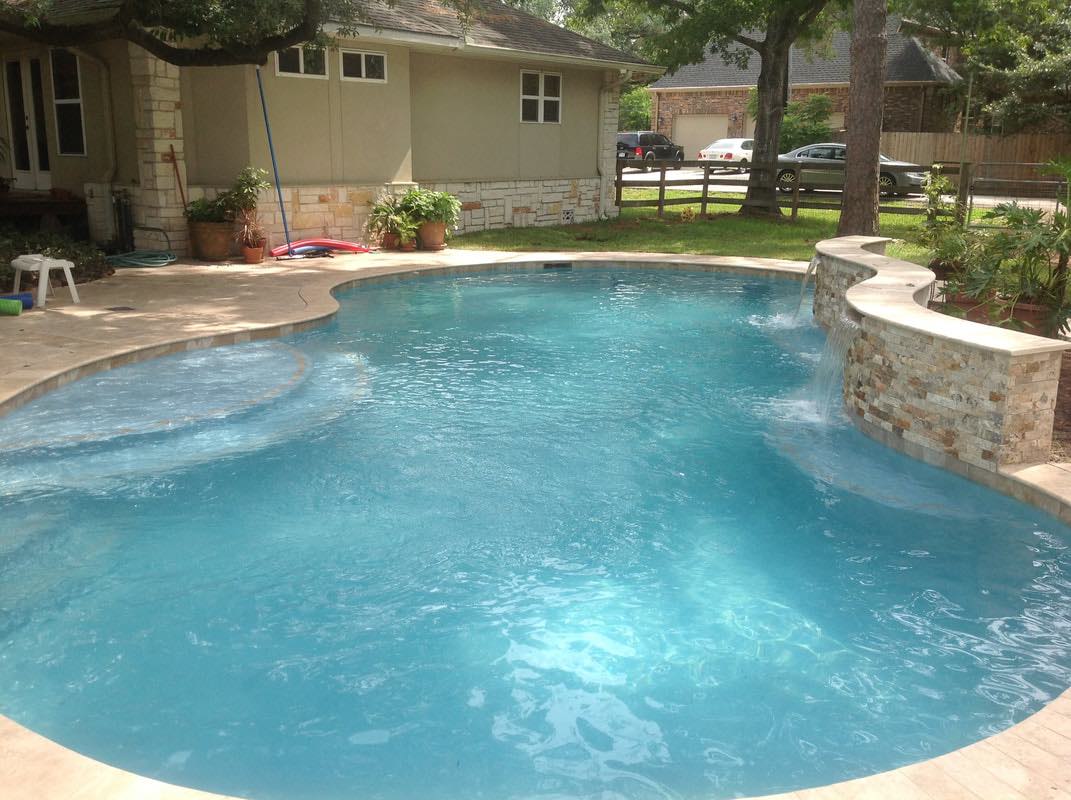Diving Rocks: Types and Benefits
Inground pools are a popular addition to many homes, offering a refreshing escape from the summer heat and a gathering place for family and friends. While there are countless ways to enhance your inground pool, one exciting and stylish option is the installation of diving rocks.
Diving rocks add aesthetic and functional value to your pool area, creating a unique and enjoyable experience. They are low to the ground without the spring that a diving board has. Most are constructed at roughly 12″ in height. They can be taller, but then there are safety concerns as they can be used for jumping, in addition to as an entryway to the pool.
Here, we help you take the dive and explore the different types of diving rocks available and the numerous benefits they bring to your inground pool.
Types of Diving Rocks for Inground Pools
Diving rocks come in various shapes, sizes, and materials, allowing homeowners to choose the perfect option to match their pool’s design and lifestyle needs. Here are some of the common types of diving rocks for inground pools:
Natural Stone
These diving rocks are natural stones such as limestone, sandstone, or granite. They provide an authentic, rustic look, giving your pool area a natural and organic feel. The irregular shapes and earthy colors of these rocks blend seamlessly with the surrounding landscape.
Concrete
Concrete diving rocks offer a more customizable and modern design. They can be molded into various shapes, like rectangular and sizes, allowing you to achieve a customized look that matches your pool’s aesthetic. Concrete diving rocks can be textured and colored to mimic the appearance of natural stone.
Fiberglass
Fiberglass diving rocks are lightweight and durable, making them a popular choice for many pool owners. They are available in various shapes, designs and colors, often featuring non-slip surfaces for safety. These diving rocks are easy to maintain and resistant to the elements.
Composite
diving rocks are constructed by combining resin and natural stone. They offer the appearance of natural stone with added durability and weather resistance. Composite rocks are often pre-cast, making installation relatively quick and straightforward.
Artificial Rock Formations
Some homeowners opt for larger, more elaborate diving features that resemble rock formations. These artificial rock formations can include built-in waterfalls, grottos, and hidden caves, adding a touch of adventure to your pool area.
Benefits of Diving Rocks for Inground Pools
Aesthetic Enhancement
Diving rocks are not just functional; they also serve as a design element that enhances the overall look of your pool area. They can transform a plain pool into a captivating focal point, adding a natural and inviting touch to your outdoor space.
Entertainment and Recreation
Diving rocks create an exciting recreational feature that swimmers of all ages can enjoy. Whether performing daring dives or simply jumping into the pool, these rocks provide endless fun for your family and friends. But always keep in mind “safety.”
Diverse Design Options
With the variety of types available, you can choose ones that match your pool’s style and your taste. Whether you prefer a more natural, organic look or a modern, customized design, there’s a diving rock for everyone.
Safety Features
Most are designed with safety in mind. They often have non-slip surfaces and appropriate heights for safe jumping or diving. This can prevent accidents and injuries, making your pool area a secure place for enjoyment. In addition, unlike traditional diving boards, diving rocks do not have a spring.
Always remember these rocks must always be placed in the deep end of the pool, deep enough for swimmers to jump in safely.
Increased Property Value
Adding diving rocks can improve the overall value of your property. A well-designed pool area with diving rocks can be a selling point when it comes time to put your home on the market, attracting potential buyers who appreciate outdoor amenities.
Landscaping Integration
These rocks can seamlessly integrate with your pool’s landscaping, allowing for the creation of beautiful and functional transitions between your pool and the surrounding outdoor environment. They can mimic the look of natural rock formations and enhance the aesthetic appeal of your backyard.
Low Maintenance
Depending on the type you choose, maintenance can be minimal. Fiberglass and composite rocks are particularly low-maintenance, as they are weather-resistant and require little upkeep. As for other types, the correct power washing can clean them up nicely.
Customization and Personalization
These rocks offer the opportunity to personalize your pool area. Whether you want a unique shape, custom texture, or even built-in water features, these rocks can be tailored to your exact specifications, creating a one-of-a-kind swimming experience.
Diving Rocks for Inground Pools: Elevate Your Poolside Experience
Diving rocks are a fantastic addition to inground pools, offering visual appeal and practical benefits. With various types to choose from and the opportunity to enhance your pool area’s safety and recreational potential, these stones are a versatile and enjoyable investment for any homeowner with an inground pool. However, as all the types are different, it is vital to speak with a professional to learn more about each, as some can be safer for your pool environment.
If you’re considering adding diving rocks to your inground pool, don’t hesitate to contact a reputable pool design and installation company, The Venture Pool Company, in Houston, Texas. The pool-building team’s expertise can help you transform your pool area into a stunning and functional outdoor oasis serving Houston and beyond.
So, why wait? Dive into a new world of pool enjoyment and add diving rocks to your new pool construction or renovation. Contact The Venture Pool Company in Houston, Texas to learn more.

